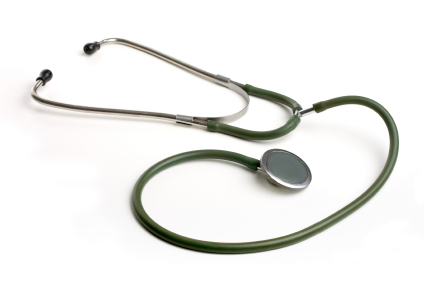Chronic Obstructive Pulmonary Disease (COPD) is an umbrella term for a group of lung diseases that include chronic bronchitis, emphysema and small airways disease. Lung damage over a long period of time impairs the flow of air in and out of the lungs and causes breathlessness.
Physiotherapy, as part of an intensive, multidisciplinary programme of rehabilitation, is an effective intervention for patients chronically disabled by obstructive pulmonary disease.
Pulmonary rehabilitation
More on COPD and physiotherapy:
Pulmonary rehabilitation is an important part of the multi-disciplinary management of COPD and is included as a key intervention in national guidelines.
Pulmonary rehabilitation is a supervised programme consisting of:
- A combination of prescribed and personalised resistance training and aerobic exercise
- An educational component to support life-style and behavioural change, to assist self-management and promote self-efficacy.
Size of the problem
- It is estimated that 1.2 million people are living with diagnosed COPD. This makes COPD the second most common lung disease in the UK after asthma
- The number of people who have ever had a diagnosis of COPD has increased by 27% in the last decade
- Up to two thirds of people with COPD remain undiagnosed
The purpose of pulmonary rehabilitation is to improve the physical and psychological condition of people with chronic respiratory conditions, such as COPD, and to promote the long term adherence of health-enhancing behaviours.
Pulmonary rehabilitation has been shown to improve exercise capacity, breathlessness and fatigue,
health-related quality of life and the sense of control that individuals have over their condition.
Pulmonary rehabilitation improves quality of life to the extent that a recent editorial by the Cochrane review has stated that given the strength of the evidence available, there is no need for further systematic reviews comparing pulmonary rehabilitation to usual care.
Results also suggest that undergoing a programme of pulmonary rehabilitation results in a lower rate of hospitalisations compared to people who do not undergo pulmonary rehabilitation, with a 36.4% reduction in exacerbations when pulmonary rehabilitation is completed.
Physiotherapy staff have a key role to play in the delivery of pulmonary rehabilitation programmes. Exercise and movement is a core pillar of physiotherapy practice.
Along with a holistic, patient-centred and problem solving approach, physiotherapists have advanced knowledge and skills in:
- anatomical, physiological, and psychosocial mechanisms of health and disease
- assessment and diagnosis
- behaviour change
- biomechanics
- exercise prescription and therapeutic exercise
- management of long-term conditions.
This is particularly important in the complex breathless patient and for those with co-morbidities requiring exercise modification.
Cost of ill health
- The total annual cost of COPD to the NHS is estimated by NICE to be over £800 million for direct healthcare costs, equating to £1.3 million per 100,000 people.
- The UK has one of the highest proportions (52%) of working age patients completely prevented from working due to their COPD
- The average total annual cost of COPD management, excluding medications, was
£1,523 for no exacerbations
£2,405 for one exacerbation
£3,396 for two or more exacerbations.
Case studies
The NHS Greater Glasgow and Clyde community respiratory team deliver home PR, supporting patients going through an exacerbation of COPD in their home as an alternative to hospital admission, shifting the balance of care from hospital to the community in a safe and effective manner.
The ethos of the service is to provide a personalised approach to care, enabling self-management by the
patients including:
- increasing patients’ knowledge of their condition(especially what to do when they are unwell)
- improving knowledge of inhaled therapies
- knowing how to clear their chest
- increasing their physical activity and independence through the provision of home PR and equipment.
On average, the service receives 91 referrals a month. The ongoing evaluation of the service has shown a
clinically significant decrease in the COPD Assessment Test (CAT) score (average decrease of 5 points), and a 10% improvement in health related quality of life (as measured by the EQ-5D-3L).
By reducing the number of hospital admissions required and having the option for patients to self-refer directly into the community respiratory team, this service predicts an anticipated annual cost saving of between £463,780 to £1,087,564.
Conclusion
Are you a CSP member? Please tell us how we can improve these briefings. Just login and complete our pop-up survey
Pulmonary rehabilitation is an extremely valuable, evidence-based intervention for improving many aspects of life for COPD patients.
There is also emerging evidence to suggest that providing pulmonary rehabilitation is beneficial for
reducing admissions and readmissions to hospital.

Please use the PDF link below to download a copy of this document, with full references, in English or Welsh.